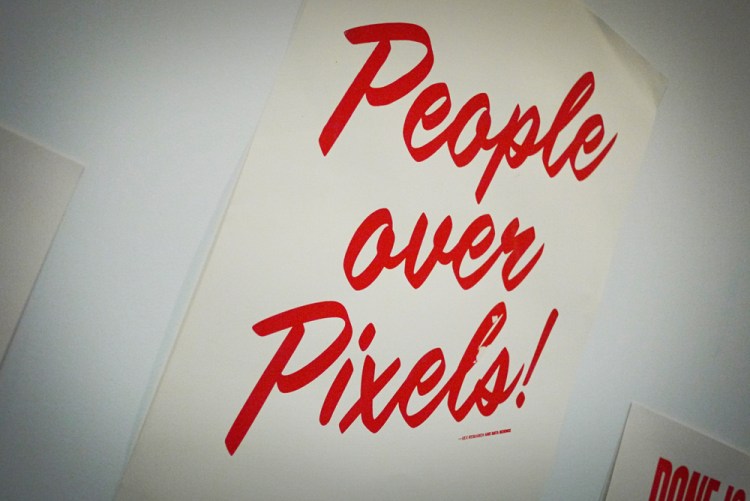If you’ve ever gotten in a politically fueled slap-fight with your in-laws on Facebook, you’re not alone. But Facebook is knee-deep in research to make the social network a place of fewer slap-fights and greater empathy.
Here are some interesting findings, based on data from 2013 and unveiled at the company’s recent Compassion Research Day, which was conducted with the help of “leading researchers from institutions studying the science of emotion”:
People appreciate tools for respectful messaging
Facebook has found that, given good tools and suggested wording, people are more likely to constructively solve problems than fume and feud.
“We supply suggested messages and make it easier for people to have a productive conversation. For example, when a user communicates to another user about a photo they found embarrassing, the photo is removed or a conversation is started about 85 percent of the time,” said a research rep.
In fact, recipients of such messages are most likely to have positive or neutral reactions to these requests.
Controversial posts aren’t intended to offend
Whether it’s about gay marriage, Tea Party politics, or Pope Francis, those hot-button posts in your feed aren’t meant to offend you. In fact, the original poster is likely to respond respectfully to thoughtful dissension and even requests to remove the post.
“The vast majority felt the post would be interesting, funny, or important to share,” reads the Facebook report on the study.
Smileys work
A winky face can make the difference between a tongue-in-cheek joke and a vicious flame war.
Facebook used Darwinian research and a Berkeley crew to master the art of non-verbal communication in online text — yes, emoticons.
“Together, we created versions of emoticons that people identified with impressive levels of accuracy, giving us a unique window into how people are conveying emotion around the world,” reads the report.
Facebook wants to be a new tool to combat bullying
It’s easy to see Facebook as just another platform for harassment, discrimination, and bullying. But the company has long been aiming to eliminate such attitudes and actions.
“We’re investing resources in helping people stand up for each other when they see bullying behavior, both online and off, with Facebook’s new Bullying Prevention Hub and new contextual resources in the heart of the Facebook product,” said the researchers.
These tools are tailored to the unique needs of people who want to take action, whether it’s a bullying victim wondering what to do, an adult who needs help talking to their child, an educator who is looking for ways to prevent bullying, or even guidance to someone accused of bullying on what he or she has done and how he or she can do better.”
VentureBeat's mission is to be a digital town square for technical decision-makers to gain knowledge about transformative enterprise technology and transact. Learn More

